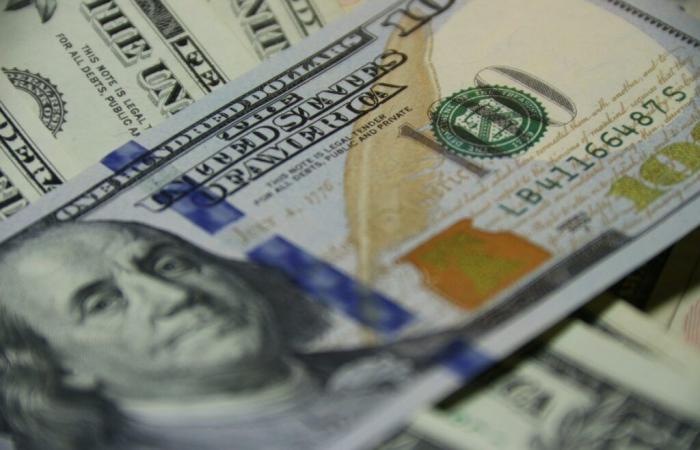Currently, for cereals, it is the USA which determines market prices, which are negotiated mainly in dollars. The BRICS want to change this situation by creating their own grain exchange.
The BRICS summit was just held in Kazan (Russia) in October; its ten members, Brazil, Russia, India, China, South Africa, Ethiopia, Egypt, Iran, Saudi Arabia and the United Arab Emirates participated, as well as many partner countries. For a certain number of observers, it is considered to be an important step in the creation of a fair and multipolar system.
In this context, the BRICS agreed, among other things, on new reforms to be implemented in the global financial system. And since four of these states — China, India, Russia and Brazil — are among the five largest producers in the world, the Summit also decided to establish a common platform for trading grains and materials firsts.
Rules that do not correspond to the balance of power
This project intends to encompass as far as possible all areas of the agricultural sector and contribute to protecting the national agricultural markets of emerging countries both from “negative external interventions and speculation” and from those experiences which could cause an artificial deficit in foodstuffs. food.
As part of its BRICS presidency for the year, the Russian delegation, which proposed the grain initiative during the Kazan negotiations, insists that the time has come to reform the general conditions prevailing in world trade in cereals, since they no longer correspond to what the real world balance of forces has become today.
In fact, in the period following the Second World War, trade rules were established based on US domination of the corn and wheat export markets: until recently, they absolutely satisfied the players. of the market. In the meantime, differences of opinion have emerged between the most important players in the global grain market, particularly regarding the use of the US dollar in
payments.
Fundamentally, the criticism of the BRICS refers to the fact that the rules which govern the market continue to be based even today on the prescriptions of the Chicago Futures Market (Chicago Mercantile Exchange), where cereals are traded in dollars and where form world grain prices. Considering that the BRICS, for whom an alternative to the dollar-based financial system is essential, claim the creation of a “new fair world order”, the grain trade in dollars represents a fundamental political issue.
In terms of financial technique, for emerging countries in full swing, it is a question of being able to establish a fair market for cereals which would be based on an alternative stock exchange and of being able to renounce the use of the dollar in trade negotiations. . Thus, grain producers from BRICS stakeholder states could become independent from the West and conquer new markets, say supporters of the Russian initiative. Furthermore, if they had their own grain exchange, the risk of financial sanctions, which currently have such a significant impact, would be reduced.
This is how, for example, various Russian goods, due to the trade embargo measures taken by the USA and their partners against Russia, are no longer authorized for sale on the Stock Exchange.
Russian experts are optimistic
From this point of view, in Russia, many financial experts and economists are of the opinion that the creation of a grain exchange specific to the BRICS would reduce their dependence on the dollar on the grain market, which would have a positive effect on the group's agricultural sector.
Iwan Efanow, an analyst at the Digit Broker agency, explains that, in view of Western sanctions, the BRICS grain exchange would help to form fair prices and move away from the dollar as a trading currency. According to him, this initiative can be carried out perfectly given that the BRICS now represent more than 40% of the world cereal market.
According to Natalja Sgurskaja, the commercial director of the grain transport company “Semliza”, the said initiative has a significant advantage: within the framework of their Grain and Trade Exchange, they plan to create a common payment system, which would not be linked to the dollar. “The more possibilities there are to determine prices outside the influence of Western financial institutions, the more our farmers will have the opportunity to make a profit on the sale of their production. “, explains Sgurskaja.
Wladimir Tschernow, an analyst with the Freedom Finance Global agency, sees the Grain Exchange as a tool to combat speculators: by artificially creating a deficit on the world market, they immediately cause a rise in prices. Under these conditions, with an alternative stock exchange, we could exclude the futures markets, for example, in order to avoid speculation. Especially since, in the event of risks of speculation, the right to trade could be expressly reserved for BRICS players.
Tschernow says BRICS would be able to counter price increases more easily. “If there was a bad harvest in Russia, it could offer goods from its stocks on the Commodity Exchange and reverse the situation in the next record harvest and replenish its stocks in such a way as to stabilize commodity prices. cereals on the BRICS market. »
Conversely, Evgenij Mironjuk, stock market expert at “BKS Investment World”, does not think that, on a planned stock exchange, grain prices can be directly oriented upwards or downwards. They would depend to a large extent on supply and demand in the BRICS.
Thus, the Grain Exchange definitely represents a very ambitious project, which could be profitable for millions of people around the world. In case it is implemented in practice and BRICS can in the future determine prices on grain, this approach could then be applied to the commodity exchange and then extended to other commercial exchanges. To, again, ensure fair prices and fight against speculation.
Translation from German, Didier Aviat
The original article can be accessed here






